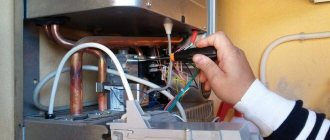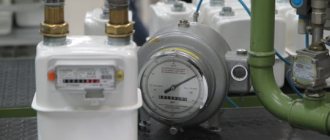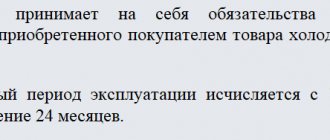What does the law say?
In connection with the increasing frequency of accidents in residential housing construction, Government Decree of the Russian Federation No. 410 dated May 14, 2013 was published, according to which homeowners must register an agreement with specialized enterprises.
According to this resolution, all work on servicing VKGO must be carried out on the basis of an agreement between the customer and the contractor (clause 6, section II of the Rules for the Use of Gas). The procedure and conditions for drawing up the agreement are also detailed here. The rules for technical control of VDGO and VKGO are described in Rostechnadzor Order No. 613 dated December 17, 2013 (clauses 6, 7 of the Rules).
If the owner refuses to sign such an agreement, service companies have the right to cut off the supply of gas to the consumer, on the basis of Government Decree of the Russian Federation No. 354 of 05/06/2011 “On the provision of housing and communal services to owners of residential premises” (clause b, article 132, chapter XIII).
In addition, legislative norms provide for administrative punishment, reflected in Law No. 412-FZ of December 5, 2016 “On Amendments to the Code of Administrative Offenses of the Russian Federation” (Clause 2, Article 9.23, Chapter 9, Section II).
Who has the right to enter into contracts for servicing gas equipment in 2020?
According to current legislative norms, responsibility for the safety of property owned by the owner of the housing rests with them (Article 210 of the Civil Code of the Russian Federation; Article 30, Article 67 of the Housing Code of the Russian Federation).
Consequently, responsibility for the safe use of household gas appliances lies with gas consumers, that is, homeowners must sign up for agreements with specialized enterprises, such as, for example, Gorgaz. Such enterprises must have an emergency dispatch service on staff. Such institutions include gas distribution enterprises that supply gas to consumers and have contractual relationships with gas suppliers.
Specialists of such enterprises have access to work, with passing the appropriate certification within the time limits established by the by-laws.
However, not all homeowners express a desire to sign such agreements, since residents have to pay monthly for maintenance of gas equipment, while such maintenance is mainly carried out once a year (subparagraph “b”, paragraph 43 of the Rules) .
According to legislative norms, a specialized enterprise has the right, on its own initiative, to send the owner of the property a proposal to issue a DOGO.
If the consumer ignores the offer of a specialized enterprise within 30 days, or refuses to sign such an agreement, the enterprise has the right to force the consumer to issue a DOGO by going to court.
Contents and form of the agreement
Since the civil engineering maintenance contract is an agreement for the provision of services, it is drawn up in accordance with the norms of civil law and contains the main clauses of a standard contract.
Mandatory information and conditions that must be contained in the text of the contract are listed in (clause 39, chapter III):
- date and place of conclusion of the contract;
- name of the contractor, details of his current account;
- information about the customer (personal data, details of an identity document);
- full address where service will be provided;
- list of gas equipment subject to maintenance;
- a list of works and services provided for in this agreement, indicating the frequency and deadlines for completion;
- total cost of payment (payment procedure).
As can be seen from the description of the main clauses of the contract, the services provided are paid, so it is important to take a closer look at the clause that defines options for paying for services and the basis for setting their prices.
So, the customer can choose two payment options:
- in the form of a subscription fee based on a receipt;
- upon completion of work according to the act.
Important: payments for servicing VDGO and VKGO are separated. The price for maintenance of gas equipment in an apartment building includes emergency dispatch support, is formed on the basis of tariffs approved by the Federal Antimonopoly Service of Russia, and depends on the quantity of gas equipment.
Please note that work aimed at eliminating gas leaks and sealing connections will be carried out free of charge, and all repair work, including replacement of equipment, will be carried out at the expense of the owner on the basis of a certificate of completion of work.
You can find out how much subscription service and repair of individual equipment costs from the current price list of a specialized organization.
Procedure for drawing up a contract
A homeowner who decides to enter into an agreement with a specialized company for servicing VKGO must send an application to it indicating personal data, address and list of GOs. The application is reviewed within ten days. If the decision is positive, an agreement is concluded with the customer.
A specialized company can itself send an offer of a draft contract to a potential customer. The customer is obliged to respond to the proposal received within 30 days. If he agrees with the text of the agreement and the company itself, the customer can go to the office, where the contract can be concluded quickly and safely.
Often specialized companies prefer to act through third parties (RCC or management company (MC)). In these cases, the agreement is concluded either through the management company, or through a payment document, on one side of which the offer agreement is printed, and on the other - a receipt for payment. By paying the receipt, the customer enters into an agreement.
If there is no response within 30 days, the initiator who sent the application may go to court to force the other party to enter into an agreement.
Customer side
The parties to the contract for the maintenance of gas equipment are the customer and the contractor. When it comes to indoor equipment, the customer is the owner or user of the property.
Since the VDGO of an apartment building is located in the service area of a specific service operator, and the number of apartments in the building is in the dozens, a completely logical question arises: is the apartment owner obligated to directly enter into an agreement with the organization that provides civil defense maintenance services.
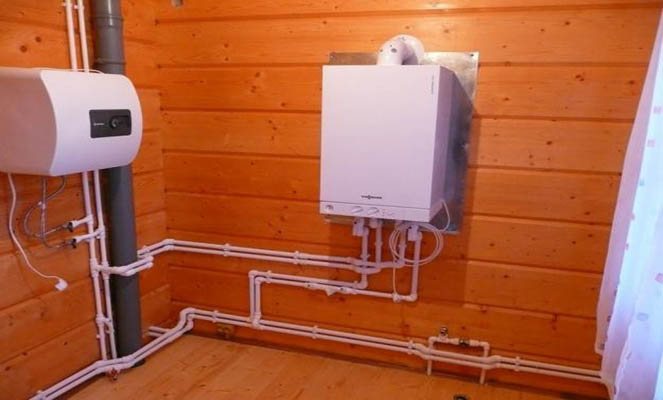
The law provides for the possibility of delegating powers to sign an agreement to representatives of the owner acting in his interests:
- person from among the owners of the premises. Grounds: power of attorney issued by a decision of the general meeting of owners of an apartment building;
- management organization. Reason: minutes of the general meeting of owners;
- HOA or cooperative. Reason: minutes of the general meeting of owners;
- agent of the apartment owner represented by the management company, HOA, cooperative. Reason: agency agreement.
Service provider side
According to the law, a specialized organization that has a permit issued to it by Rostechnadzor in accordance with current legislation acts as a supplier with whom it is possible to enter into an agreement for the maintenance of VKGO.
This is primarily a gas distribution organization, which includes an emergency dispatch service.
The service organization must meet certain requirements for staff and technical equipment:
- the staff must be formed of certified employees with specialized education who have undergone on-the-job training and training;
- measuring instruments, instruments, devices must undergo metrological control, be calibrated and certified;
- Maintenance programs and event schedules must be specified in the contract.
Important: the gas distribution organization is not the only organization with which you can enter into a maintenance agreement. This can be any other organization that has permission to carry out this type of activity.
Documents required for concluding an agreement
Once the customer and service provider have been determined, you can begin to draw up the contract itself. However, a simple intention is not enough; you will need to collect a package of documents:
- customer's identity card. If instead the agreement will be concluded by an authorized person or representative, a basis document (power of attorney, minutes of the meeting, agency agreement) will be required;
- certificate of state registration in the Unified State Register of Rights to the apartment in which the VKGO is located, or other supporting documents;
- technical passports, certificates of conformity and other documents confirming the composition and compliance of VKGO with regulatory technical requirements;
- subscriber book with a note about the last equipment check.
All listed documents can be submitted in the form of certified copies or with originals for verification.
Is it possible not to conclude an agreement?
Legislative regulations of the Russian Federation do not imply refusal to register a DOGO.
At the same time, consumers are obliged to pay the contractor for maintenance of gas equipment in a timely manner. The frequency of maintenance of gas appliances is usually specified in the agreement. For example, a stove and meter are usually checked once every 3 years, a gas boiler - once a year.
For consumers who believe that it is better to pay fines than to make regular payments for the maintenance of gas appliances, the law provides for another enforcement measure - turning off the gas. To restore the connection, you will need to issue a DOGO and pay for disconnecting and connecting gas.
If an accident occurs or there is a smell of gas, the consumer is required to submit an application to the service agency to stop the gas supply until the malfunction is eliminated.
You can refuse to issue a DOGO if:
- The management company, co-op or homeowners association has already issued a DOGO on behalf of the apartment owner.
- The consumer independently signed an agreement with another specialized enterprise.
- The homeowner did not formalize a contract for gas supply.
Penalties for lack of contract
According to Government Decree of the Russian Federation No. 549 of July 21, 2008, the gas consumer must issue a DOGO.
If you refuse to sign such an agreement, not only the gas supply can be turned off, but also administrative punishment is allowed (Article 9.23 of the Code of Administrative Offenses of the Russian Federation). The rules for the safe use of gas appliances in houses and apartments are regulated by Law No. 412-FZ of December 5, 2016, which provides for the following responsibilities:
- Failure to comply with the requirements for the frequency of maintenance and repair of gas appliances entails the imposition of an administrative fine:
- For individuals in the amount of 1,000 to 2,000 rubles.
- For officials - from 5,000 to 20,000 rubles.
- On legal persons - from 40,000 to 100,000 rubles.
- Refusal to register a DOGO, if such registration is mandatory, leads to the imposition of an administrative fine:
- For individuals in the amount of 1,000 to 2,000 rubles.
- For officials - from 5,000 to 20,000 rubles.
- On legal persons - from 40,000 to 100,000 rubles.
- In addition, not allowing an employee of a specialized institution into the house who has previously notified of his visit is punishable by a fine of 1,000 to 2,000 rubles.
- Failure to replace faulty gas appliances results in the same fine.
- Repeated failure to comply with legislation regarding gas equipment may result in a fine of 2,000 to 5,000 rubles.
- Actions/inactions that led to an accident are punishable by a fine of 10,000 to 30,000 rubles.
Article Rating
Penalties in the absence of an agreement
Evasion from fulfilling obligations to conclude an agreement for the maintenance of gas equipment in the apartment will entail punishment. In this case, several penalties are provided.
- Suspension of gas supply with prior notice and reason 40 days after the first warning or 20 days after the second warning.
- Administrative fine in the amount of:
- 1-2 thousand rubles for individuals;
- 5-20 thousand rubles for officials;
- 40-100 thousand rubles for legal entities.
For repeated commission of an administrative violation, the fine is doubled.
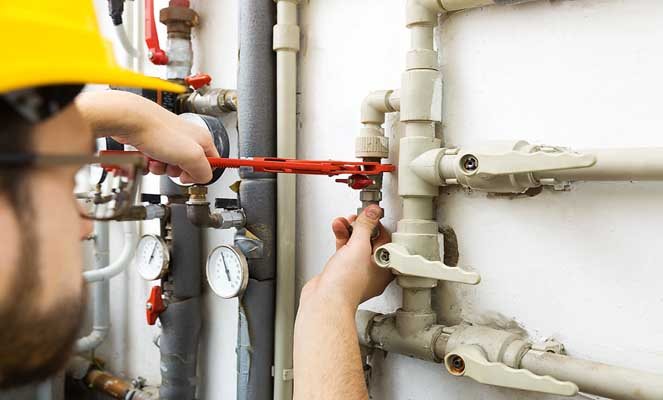
The existence of a maintenance agreement for gas storage facilities is the basis for supplying gas to consumers. In case of refusal to sign an agreement with the gas distribution organization, it has grounds to terminate the contract for the supply of gas to the apartment.
Why choose us
MOSOBLGAZ We provide a full package of documents for the gas service. You can submit our documents to the gas service for registration of a gas boiler.
WARRANTY When performing maintenance, you receive an additional warranty from the manufacturer and increase the operating time of the boiler.
RELIABILITY When performing maintenance, we use only original spare parts and tools, which allow you to be sure that the boiler will not let you down even in winter!
OWN WAREHOUSE We have our own warehouse of spare parts for repairing boilers and water heaters. We do not sell spare parts at a crazy markup, since we purchase them directly from the dealership, avoiding resellers.
DISCOUNTS When concluding an agreement with our company, you will receive a 30% discount on service, 20% on repairs, and 5 to 10% on spare parts. Additional discount for pensioners and large families!
COLLECTIVE DISCOUNT When concluding 10 or more contracts, there is a collective discount for each client, as well as special conditions for clients to choose from: free service, free contract, agent bonus for each concluded contract.
FIXED PRICES Transparent current price list for work. The price of the work and the contract for our clients does not change during the term of the concluded contract.
URGENT DEPARTURE OF THE MASTER Masters leave on the day of the request, arrival time is about 40 minutes, the interval can increase only if the object is significantly removed from the company’s office and the master is located at the application.
When concluding a contract for the maintenance of indoor gas equipment with Teploservice-OVK, you will have significant advantages:
- You will receive a whole range of works (operations) for the maintenance of your gas appliances, stoves, water heaters, boilers.
- You yourself will determine how often the technician should carry out preventive maintenance on your gas equipment.
- You will not need to make monthly payments because the agreement does not provide for a subscription fee. The cost of services provided is determined based on the actual volume of work based on the current Price List.
- You will not need to go to a subscriber point to pay for the service. You can pay our master for the service on the spot. He will give you a receipt for payment.
- You will have confidence that your gas appliances are in good condition, because they periodically undergo preventive diagnostics.
CALCULATE THE EXACT COST OF THE CONTRACT:
FOR FREE
List of works during maintenance of VDGO
When maintaining indoor gas equipment in residential and public buildings, the following types of work are performed:
- checking (visual) compliance of the installation of gas-using equipment and the laying of gas pipelines in the premises with regulatory requirements;
- checking (visual) the availability of free access to gas pipelines and gas-using equipment;
- checking the condition of the painting and fastenings of the gas pipeline, the presence and integrity of casings in places where gas pipelines are laid through the external and internal structures of buildings;
- checking the tightness of connections of gas pipelines and fittings using an instrument method or soap emulsion;
- checking the integrity and completeness of gas-using equipment;
- checking the functionality and lubrication of taps (valves) installed on gas pipelines, if necessary, refilling the stuffing box seals;
- checking the presence of draft in the smoke and ventilation ducts, the condition of the connecting pipes of gas-using equipment with the smoke duct, the presence of air flow for combustion;
- dismantling and lubrication of all taps of household gas-using equipment;
- checking the functionality of the safety automation of household gas-using equipment, its adjustment and adjustment;
- cleaning burners from contaminants, adjusting the gas combustion process in all operating modes of the equipment;
- checking the tightness (pressure testing) of household gas-using equipment;
- identifying the need for replacement or repair (restoration) of individual components and parts of gas-using equipment;
- checking the presence of special signs on gas burners, appliances and devices with exhaust of combustion products into the chimney, warning about the mandatory check for the presence of draft before and after igniting the equipment;
- instructing consumers on the rules for safe use of gas at home.
For household gas stoves, the following are additionally checked:
- reliability of fastening the table to the stove body;
- reliability of fastening of the thermal indicator and its performance;
- absence of mechanical damage to the table grid, creating an unstable position of the dishes;
- reliability of fastening and free movement of baking sheets and racks in the oven;
- fixing the oven door;
- automatic ignition of burners, rotation of the spit and operation of a safety device that stops the supply of gas to the burner when the flame goes out on luxury stoves.
Water heaters are additionally checked:
- the tight fit of the coil to the walls of the fire chamber, the absence of drops or leaks of water into the heat collector, the horizontal installation of the fire surface of the main burner, as well as the absence of displacement of the main and ignition burners, the absence of gaps between the links of the connecting pipe;
- the condition of the water part of the faucet block (with its disassembly), membranes, filter and other components;
- condition of heat exchangers with their cleaning from soot and scale (on site or in workshops);
- operability of cold water valves.
For domestic gas boilers, the following are additionally checked:
- absence of gaps in the furnace masonry and in the place where the front burner sheet is attached to the frame located in the furnace masonry;
- the presence of a draft stabilizer for furnaces equipped with a continuous gas burner device (if it is included in the design);
- free movement of the gate in the guides, the magnitude of the stroke and the presence of a hole in the gate with a diameter of at least 15 mm;
- the presence of draft in the firebox of the stove;
- Availability of safety automatics for gas burner devices. If it is missing, the gas burner device must be replaced.
